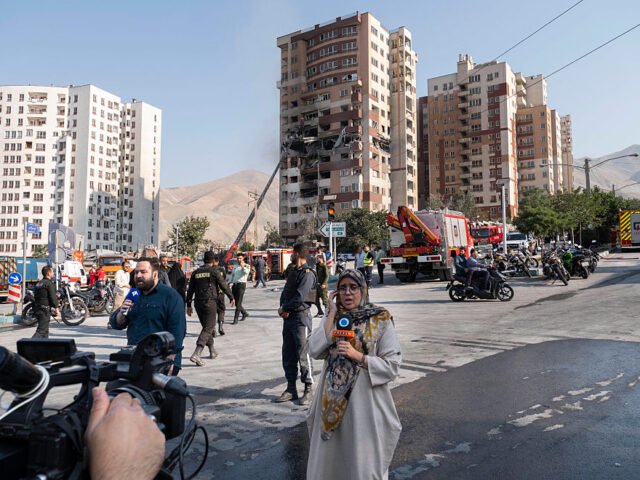European Leaders Chastise Israel For Striking Iran, Call For De-Escalation

Several European leaders urged Israel and Iran to de-escalate after Jerusalem launched a “pre-emptive” strike on Iranian military leaders and facilities over night.
Iran’s Ayatollah has vowed “harsh punishment” in revenge after Israel launched targeted strikes overnight and launched a flight of suicide bomb drones, but European leaders urged both sides to stay their hands and engage in diplomacy. The United Kingdom, which has given Israel the cold shoulder in many respects since the new left-wing government took power last year rushed to assert it was “not involved in what happened overnight” and said its goal is to “prevent escalation”.
Government minister Sarah Jones spoke to Times Radio on Friday morning noted the Labour government had already blocked the sale of some arms to Israel because of the “intolerable… military expansion” in Gaza but wasn’t drawn on whether that stance would now change either way. The minister also didn’t respond when asked on whether the United Kingdom would help defend Israel from missile attacks, as it had done in the past.
The Times’ defence editor further asserted “sources” had said there were presently no plans to “protect Israel as Iran retaliates like it did before”, but noted this may later change.
Meanwhile, the British Prime Minister Sir Keir Starmer and his chief diplomat David Lammy — who has been at the forefront of UK criticism of Israel in recent months — expressed their disquiet at the strikes. Starmer said they were “concerning” and said no-one was served by the bombings. The Prime Minister said in a statement: “Now is the time for restraint, calm and a return to diplomacy.”
Lammy also expressed concern at a “dangerous moment” and said he urged “all parties to show restraint” over a “serious threat to peace [and] stability in the region”.
The Secretary General of NATO, former Dutch Prime Minister Mark Rutte, also spoke out on the strikes on Friday morning during a visit to Sweden. He said: “It is obviously a rapidly evolving situation, and it is not a unilateral action by Israel so I think it is now crucial for many allies, including the United States, to work, as we speak, to de-escalate. I know that they are doing that and I think that is now the first order of the day”.
Other European states said that while they recognised Israel’s right to defend itself, they still did not approve of the strikes on Iranian military leaders and nuclear facilities overnight. Germany’s Friedrich Merz said he had been notified of the strikes hours in advance by Israeli Prime Minister Benjamin Netanyahu and reaffirmed “that Israel has the right to defend its existence and the security of its citizens”.
Nevertheless, he called “on both sides to refrain from steps that could lead to further escalation and destabilize the entire region”, reports Die Welt.
France’s Foreign Minister Jean-Noël Barrot said his primary goal was France’s national interests and the safety of its citizens. He related in a statement: “We have repeatedly expressed our serious concerns regarding Iran’s nuclear program, notably in the resolution recently adopted by the International Atomic Energy Agency. We reaffirm Israel’s right to defend itself against any attack. It is essential that all diplomatic channels be used to defuse tensions. France is fully committed to contributing to this.”